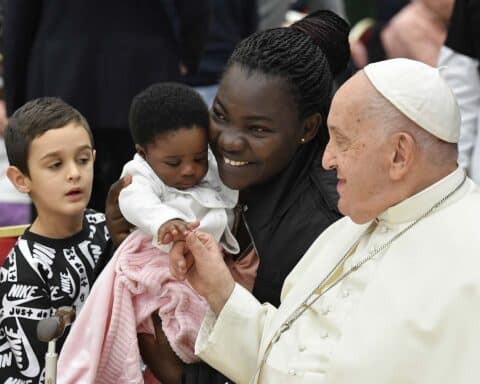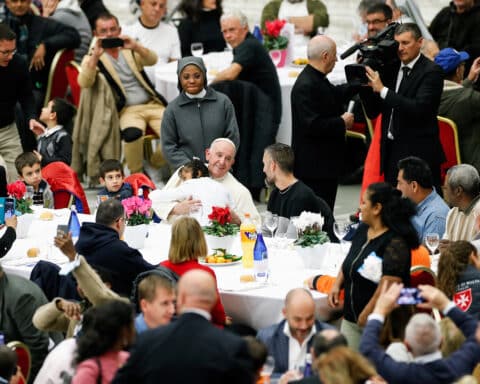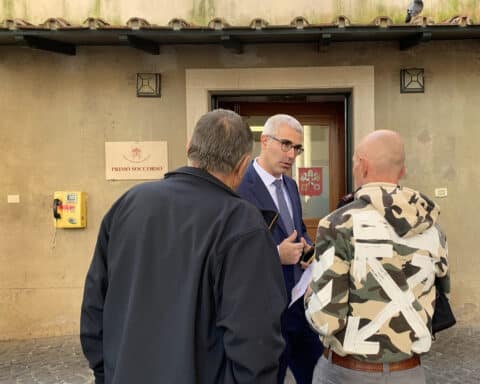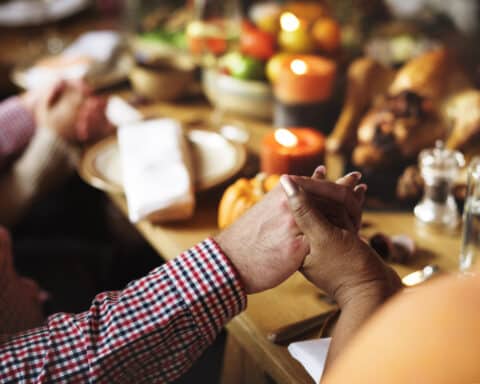When President Abraham Lincoln made Thanksgiving a federal holiday in 1863, the United States was embroiled in the Civil War. And yet the language employed by our 16th president in his proclamation that year was rich in its imagery of unity among people and gratitude toward God, as he encouraged every one of his fellow citizens to observe this “Day of Thanksgiving and Prayer to our beneficent Father who dwelleth in the heavens.”
Against the backdrop of the Civil War, this abiding faith in God’s providence feels especially profound. It should be a source of hope that we in the United States today can seek and find healing in the wake of a bruising midterm election cycle, which only inflamed an already charged political discourse. It’s a discourse that has turned the Thanksgiving holiday into something of a running cultural joke: How can extended families keep the peace from the carving of the turkey all the way through the pumpkin pie, when Uncle Bob is likely to bring up politics?
Turning to the roots and traditions of Thanksgiving in the United States can be helpful. Whether speaking of the pilgrims at Plymouth Rock or the first Mass celebrated in this country in 1565, in what is now St. Augustine, Florida, we see that, from the first, this observance has the right name.
With the Pilgrims, it was an act of giving thanks to the God who had sustained them by offering the first fruits of the harvest back to him as they celebrated their feast. They expressed their gratitude through sacrifice. Similarly, the Eucharist — which means thanksgiving — found the Spanish settlers offering the first fruits of creation, Jesus Christ, back to God in an act of sacrifice and feasting.
Whether in the 1500s, 1600s, 1800s or today, what we see consistently making a difference in people’s lives is this posture of gratitude and trust. Instead of hoarding, the pilgrims feasted. Instead of drawing ever-deeper lines of division, President Lincoln called on his countrymen to find unity. And today, when so much grasping occurs — around political gains, ideological agendas and persistent assumptions that there isn’t enough for everyone — it behooves us to loosen our grip, find perspective and appreciate the beneficent Father that Lincoln spoke of at work in the world and in the people around us.
This spirit of charity would be a sea change. The grateful heart gives back. The grateful heart has more than consternation to offer both his brothers and sisters, and strangers. This is the leaven we, as people of faith, can bring to the Thanksgiving table, to the table of the Lord and to our communities.
This issue of Our Sunday Visitor coincides not only with the Thanksgiving holiday, but also with the Church’s second observance of the World Day of the Poor — this year Nov. 18 — which Pope Francis instituted in 2016. In an essay in this issue (Page 8), Carolyn Woo unpacks the message of Pope Francis for this observance: that giving to the poor is also a way of sacrificing something back to God, who identifies explicitly with the poor, who answers their cries and abides with them in a dynamic that demands our action as well.
Finding gratitude for all God has provided — especially in the midst of crises in our world and our Church — will help us enter into the dynamic between God and others in true charity this Thanksgiving. May this perspective be a source of comfort, encouragement and ultimately motivation for our spirits this holiday season.





